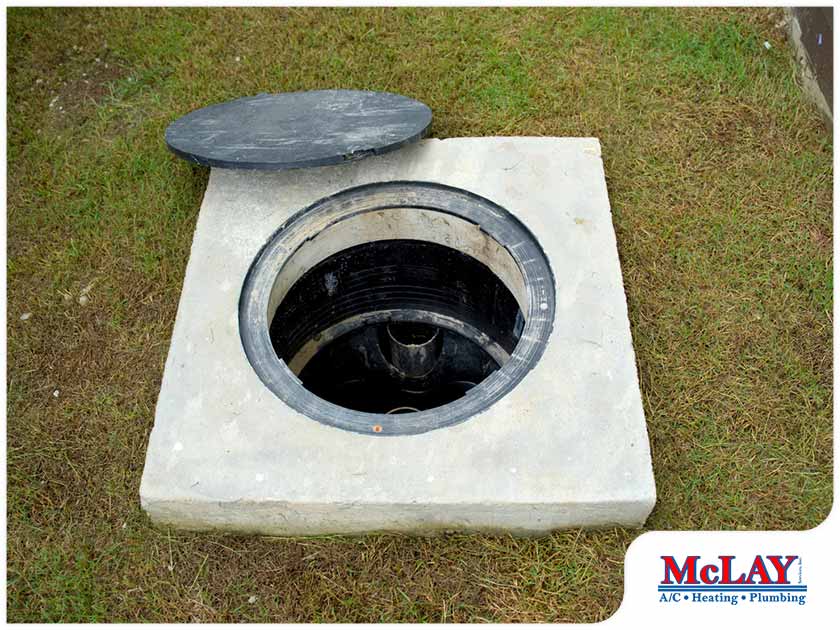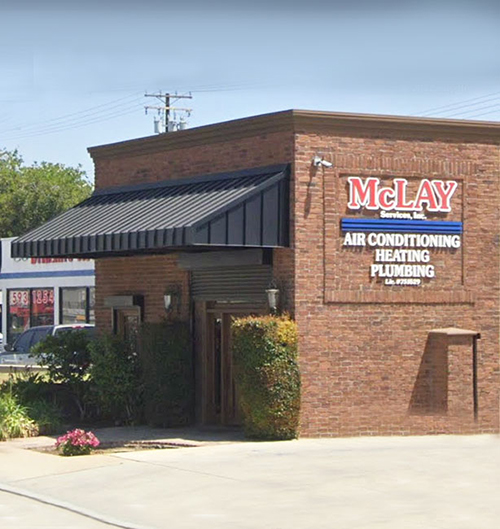Many of us at home have gotten into the habit of pouring food waste—including liquid waste like used cooking oil or grease—down the drain after cooking. This is a bad idea because it can create problems at local water treatment facilities and clog the sewer system. This is one reason why establishments in the food service and hospitality industries utilize grease traps in their kitchens.
Here McLay Services, Inc., your trusted contractor for your plumbing, heating and air conditioning needs, explains everything you need to know about this important fixture.
How the Grease Trap Works
A grease trap, also known as a grease interceptor, is a plumbing fixture that captures food waste that goes down the drain and keeps it from entering the water supply. When the outflow from the kitchen sink enters this device, the solid food particles sink to the bottom while fats, oils and grease (FOG) float to the top. The grease-free water is then fed into the normal septic system, while the accumulated food waste is removed manually using a septic pump.
Why Commercial Kitchens Need It
In a commercial kitchen operation, plenty of substances go down the drain. With a grease trap installed, the long-term accumulation of FOG and other food waste, as well as its disastrous effects, can be avoided. Of course, it will still need periodic maintenance performed by a reliable plumbing and HVAC contractor to ensure its function, especially in a busy working environment like a restaurant or hotel kitchen.
How to Keep the Grease Trap Working Effectively
Whether you’re cooking at home or running a business that serves food, you need a grease trap in your kitchen that works effectively and efficiently. Be sure to keep these maintenance tips in mind:
- Scrape food leftover from plates – Do this before cleaning the dishes at the sink to limit the amount of waste going down the drain.
- Recycle cooking oil – Never pour used cooking oil down the drain. It can be recycled into sustainable biofuel.
- Empty your grease trap – The effectiveness of the grease trap is reduced when it gets more than one-fourth full of food waste. Keep an eye on how quickly the device fills up so you know when to clear everything out.
McLay Services, Inc. specializes in providing exceptional plumbing, heating and air conditioning repair services. Give us a call at (909) 392-2202 or fill out our contact form to schedule an appointment. We serve homeowners in and around Pomona and Claremont, CA.



